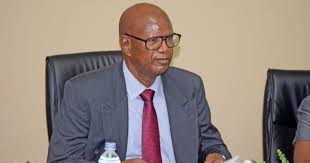After The OIC Summit- What Next?

Demba Ali Jawo, Former Minister Of Information
By D. A. Jawo
The much anticipated summit of the Organization of Islamic Cooperation (OIC) for the past five years, has finally come to a successful conclusion, some people would say.
While success is a relative term in this instance, but the very fact that it happened against all the odds as well as predictions by some people that it would never take place, is definitely a success.
However, there is absolutely no doubt that President Adama Barrow and his administration were not quite so upbeat about the turn-out, especially considering the fact that out of the 57 member states, only five heads of state attended, and not a single one of the heavyweights made it to the summit. Obviously, any OIC summit without any of the kings, emirs and powerful princes of the Middle East smacks of some sort of a failure.
While we are waiting for analysts to interpret the outcome of the summit, but there is no doubt that some of the hitches associated with the preparations may have had some bearing on the failure of virtually all those heavyweights from attending. One of those possible hitches is the failure of the government to get the five-star hotel project off the ground, after all the noise and fanfare made during the foundation stone-laying ceremony. While we have heard President Barrow express disappointment with the failure to get the hotel constructed, but he never disclosed what went wrong. All that we know is that the Senegalese businessman who was supposed to pre-finance the construction of the hotel is involved in a civil suit, claiming millions of Dalasis from a lady whom he alleged had promised to get married to him and later disappointed him.
Without the hotel, it meant that all the guests were instead accommodated in various local hotels and other guest houses, which no doubt had some bearing on security and other logistics. Getting all the VVIP guests in one place would have greatly enhanced security and it is possible that some of those who failed to attend had some security concerns that had kept them away.
Whatever the case however, the summit had successfully taken place and we should congratulate both the local OIC secretariat for all the efforts that went into the preparations as well as to President Barrow for assuming chairmanship of the OIC for the next three years. Most Gambians and residents of the Gambia are also quite happy with the beautiful roads and other projects associated with the summit.
However, now that the summit is over, many people are asking what next. It is quite obvious that many of the roads and other projects associated with the summit were not fully completed, and people are asking whether the government would carry on to get them completed or are we going to relapse into the usual lackadaisical attitude and drag the work indefinitely? This is especially true of the Bertil Harding Highway which is far from complete, including the absence of footbridges to facilitate pedestrians crossing from one side to the other, as well as the side roads and exits.
Another concern of most Gambians is what would become of the hundreds of brand new vehicles that were acquired for the summit. We were made to understand that apart from the 100 new vehicles procured by the government, there were also another 100 vehicles acquired from Mauritania. We were also told by the CEO of the local OIC secretariat that they were also promised enough money to hire other vehicles if the need arose, which I hope never did. Was it really necessary to acquire all those vehicles, especially considering the cost involved? There is a general consensus that the vehicles acquired from Mauritania, together with the huge fleet of government vehicles should have been enough to take care of the transportation needs of the summit rather than spend so much scarce resources in acquiring so many vehicles.
Therefore, the question everyone seems to be asking is what would become of all those vehicles after the summit. The government already has quite a large fleet of vehicles and any additions to that number would drastically increase the fuel bill as well as other running costs such as wear and tear.
“I would not be surprised if they sell those vehicles to themselves and their family members at give away prices,” predicted a critic of the government. Of course some concerned Gambians would not be inclined to dismiss such a possibility outright and we expect the authorities to be quite transparent in how they would handle those vehicles and all other assets acquired for the summit from public funds.
Another noticeable phenomenon of the summit was the poor electricity supply experienced by many people around the Greater Banjul Area during the period of the summit. This is despite the promise that the hosting preparations included a package for NAWEC to enhance their services. It however appears that virtually all the available electricity supply was directed at the summit, leaving the ordinary people to endure the hottest few days ever experienced in this country in living memory.

